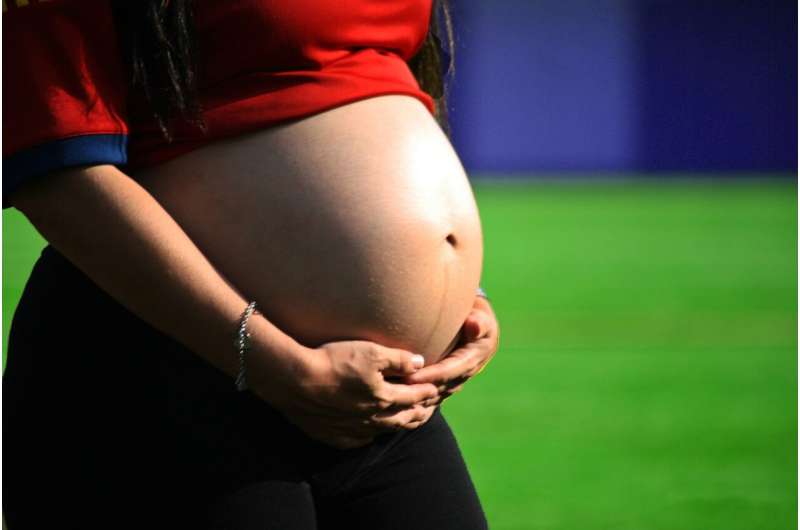This article has been reviewed according to Science X's editorial process and policies. Editors have highlighted the following attributes while ensuring the content's credibility:
fact-checked
peer-reviewed publication
trusted source
proofread
New study finds gaps in maternal immunization data sets

A study led by a University of Canterbury geospatial and population health expert has uncovered gaps in nationwide data that tracks maternal immunization rates. The study has been published in the New Zealand Medical Journal.
Health Senior Lecturer Dr. Matt Hobbs is also co-director of the GeoHealth Laboratory in the University of Canterbury (UC) Geospatial Research Institute. He collaborated with researchers in the fields of pharmacy, midwifery, public health systems and Māori health to study the accuracy of data relating to maternal immunizations for influenza and whopping cough between 2013–2021.
"The Health and Disability System Review focused on the need for a nationwide approach to improve health outcomes for all. Our study is about an essential component for making that happen—namely, improving the available data and the systems that hold data so the service can achieve the most equitable outcomes," says Dr. Hobbs.
"Ultimately this research is to prevent hospitalizations and potentially fatal outcomes during pregnancy and early infancy."
The team spent several years collating immunization records held by pharmacies, general practices, and the Nationwide Immunization Register. While the researchers saw a steady improvement in the accuracy of data captured by these sources over time, they estimate that in 2021 10% of maternal immunizations were still not recorded.
Dr. Hobbs believes this can be attributed to the ongoing transition away from older systems, such as the silos of district health boards, to nationwide health systems such as those to be overseen by Te Whatu Ora and Te Aka Whai Ora, the Māori Health Authority.
"Even though the DHBs are no longer operating separately, some of the infrastructure and data collection systems seem to still be in place," he says.
"It takes time to develop new data systems but right now it's a time-consuming process to acquire the full data set. This means the true picture about maternal immunization coverage in some areas is inaccurate."
Te Whatu Ora is currently developing a national system, the Aotearoa Immunization Register (AIR) to replace the aging National Immunization Register. The new system will enable a comprehensive picture of population immunization coverage, and support more targeted health policy. Dr. Hobbs sees this as a vital step.
More information: Matthew Hobbs et al, A new national health system: the opportunity to address data quality issues in maternal immunisation coverage, New Zealand Medical Journal (2023). journal.nzma.org.nz/journal-ar … mmunisation-coverage
















